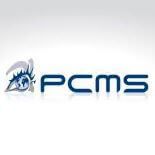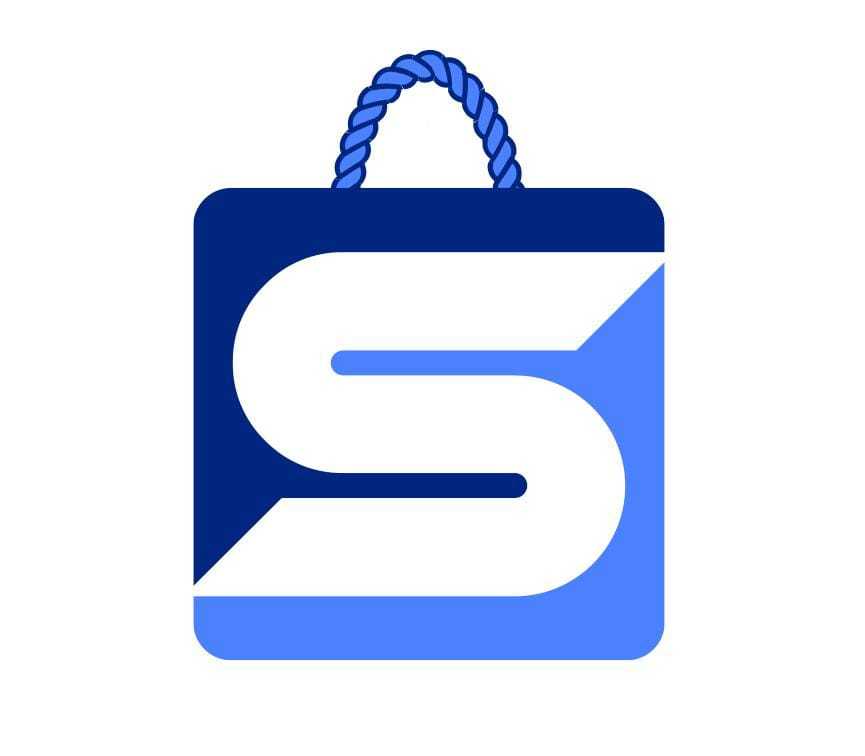Description

BigStore

PCMS Retail
Comprehensive Overview: BigStore vs PCMS Retail
BigStore and PCMS Retail are two distinct solutions in the retail technology space, each serving the needs of retailers by providing tools for efficient store operations and customer engagement. Here's a comprehensive overview of both:
BigStore
BigStore is typically a retail management solution designed to help businesses manage their inventory, sales, and customer relationships effectively. It is often aimed at medium to large retail chains that need robust systems to handle complex operations.
a) Primary Functions and Target Markets:
- Inventory Management: Offers tools for tracking stock levels, managing suppliers, and reordering items automatically.
- Sales Processing: Facilitates the processing of transactions, supports various payment methods, and provides detailed sales reports.
- Customer Relationship Management (CRM): Helps in managing customer data, loyalty programs, and personalized marketing campaigns.
- Target Market: Medium to large retailers, particularly those with multiple store locations looking for a centralized management system.
PCMS Retail
PCMS Retail solutions focus on creating a seamless omnichannel experience, enabling retailers to integrate their in-store, online, and mobile operations more efficiently. This is critical for retailers looking to enhance customer engagement across different platforms.
a) Primary Functions and Target Markets:
- Omnichannel Solutions: Integrates online and offline sales channels to provide a unified shopping experience.
- Point of Sale (POS) Systems: Equipped with advanced POS systems that ensure fast and reliable transactions both in-store and online.
- Data Analytics and Insights: Provides detailed analytics for improving sales strategies, customer engagement, and operational efficiency.
- Target Market: Typically targets large retail chains or enterprises focused on maximizing their omnichannel presence and customer experience.
b) Market Share and User Base:
- BigStore tends to have a significant presence among medium-sized businesses and is often preferred by retailers who require straightforward inventory and sales management without complex omnichannel needs.
- PCMS Retail is more likely to have a foothold in larger enterprises who are already invested in sophisticated omnichannel strategies. This is due to their comprehensive integration capabilities and focus on creating a seamless customer experience.
c) Key Differentiating Factors:
-
Technology Integration:
- BigStore is focused more on core retail functions like inventory and CRM with straightforward integration options.
- PCMS Retail offers advanced integration with various digital channels, providing a holistic approach to sales and customer interaction.
-
Scalability:
- BigStore is scalable but most effectively serves mid-sized operations looking for fundamental retail management tools.
- PCMS Retail is built for scalability across large, complex organizations needing extensive customization and integration capabilities.
-
User Experience:
- BigStore prioritizes a user-friendly interface that is easy for staff to adopt with minimal training.
- PCMS Retail often implements more complex systems that require a greater level of employee training but offer a more customized and streamlined user experience.
-
Focus on Data:
- BigStore provides essential reporting and analytics suited for general operational insights.
- PCMS Retail delivers in-depth analytics with predictive insights and detailed customer journey mapping, offering more actionable intelligence for retail strategies.
In conclusion, retailers will choose between BigStore and PCMS Retail based on their size, scale, and the complexity of their operations. Those focused on omnichannel strategies and deeper analytics might prefer PCMS Retail, while those needing solid core retail management tools may opt for BigStore.
Contact Info

Year founded :
Not Available
Not Available
Not Available
Brazil
http://www.linkedin.com/company/bigstorehq

Year founded :
Not Available
Not Available
Not Available
Not Available
Not Available
Feature Similarity Breakdown: BigStore, PCMS Retail
When comparing BigStore and PCMS Retail, which are both solutions designed to support retail operations, it is important to look at their core functionalities, user interfaces, and distinctive features to understand how they stack up against each other.
a) Core Features in Common
Both BigStore and PCMS Retail offer a suite of features essential for effective retail management. Common core features typically include:
-
Point of Sale (POS) Systems: Both platforms provide robust POS systems to facilitate transactions efficiently within a retail environment.
-
Inventory Management: Both systems offer tools for tracking inventory levels, managing stock, and forecasting demand to prevent overstocking or stockouts.
-
Customer Relationship Management (CRM): These platforms often include CRM features to capture customer data, manage communications, and enhance customer service.
-
Reporting and Analytics: BigStore and PCMS Retail provide reporting tools to analyze sales data, understand customer behavior, and optimize business decisions.
-
Multi-Channel Support: Both systems support multiple sales channels such as in-store, online, and mobile, offering a seamless shopping experience.
-
Loyalty Programs: They typically offer features to manage and track customer loyalty programs, facilitating customer retention strategies.
b) User Interface Comparison
-
BigStore: BigStore generally focuses on a clean, user-friendly interface with customizable dashboards. The interface is designed to be intuitive, reducing the learning curve for new users and providing quick access to key features.
-
PCMS Retail: PCMS Retail often emphasizes a more traditional interface but has made strides in offering customizable options and a unified user experience across different platforms. The system typically offers thorough navigability with comprehensive feature access.
c) Unique Features
-
BigStore Unique Features:
- Integration Flexibility: BigStore might offer more extensive integration capabilities with third-party applications, allowing retailers to tailor additional functionalities according to their business needs.
- Advanced AI Tools: It may include advanced artificial intelligence tools for predictive analytics and personalized marketing strategies.
-
PCMS Retail Unique Features:
- Extensive Global Support: PCMS Retail often stands out with its ability to support multi-country, multi-currency, and multi-language configurations, making it suitable for large global retailers.
- Enterprise-Level Customization: PCMS Retail can offer high levels of customization for enterprise customers, providing tailored solutions that meet specific retail process requirements.
In summary, while BigStore and PCMS Retail share numerous core features that address essential retail operation needs, they also exhibit unique offerings and interface styles that cater to different types of retail businesses. BigStore leans towards a modern, integrative, and predictive approach, whereas PCMS Retail offers robust global support and customizability for enterprise environments.
Features

Not Available

Not Available
Best Fit Use Cases: BigStore, PCMS Retail
BigStore and PCMS Retail are two distinct products catering to the retail industry, each with strengths suited for different business needs and environments. Let's break down the best fit use cases for each:
a) BigStore:
- Types of Businesses or Projects:
- Large Enterprises with Complex Inventory: BigStore is ideal for large retail enterprises that manage extensive and diverse inventories across multiple locations. Its robust architecture can handle the complexities of large-scale operations.
- Companies Focused on Omnichannel Retail: Businesses looking to integrate their online and physical store operations seamlessly can benefit from BigStore's capabilities to synchronize sales, inventory, and customer data across all channels.
- Retailers with Significant Data Processing Needs: BigStore is well-suited for companies that need to manage and analyze significant volumes of transaction data daily, supporting data-driven decision-making.
b) PCMS Retail:
- Preferred Scenarios:
- Mid to Large Sized Retail Chains: PCMS Retail is tailored for mid to large-sized chains that require a versatile point-of-sale (POS) system capable of scaling with business growth.
- Businesses with Customization Needs: Retail operations that demand a highly customizable solution can find PCMS Retail advantageous due to its flexibility in adapting to specific operational workflows and processes.
- Focused on In-Store Experience Enhancement: It is preferred by retailers keen on elevating the in-store customer experience through innovative POS features, streamlined checkout processes, and enhanced customer interaction capabilities.
d) Catering to Different Industry Verticals or Company Sizes:
- BigStore:
- Industry Verticals: It is particularly beneficial for sectors like electronic goods, home appliances, and large-format department stores where inventory complexity and volume are high.
- Company Sizes: Best for very large retailers with significant IT infrastructure and a broad geographic presence requiring centralized control but decentralized operations management.
- PCMS Retail:
- Industry Verticals: Suitable for fashion retailers, specialty chains, and grocery stores that require flexible POS capabilities and in-depth customer engagement functionalities.
- Company Sizes: Serves mid-size to large enterprises aiming to expand their operational footprint while ensuring system reliability and scalability.
Both BigStore and PCMS Retail offer distinctive advantages tailored to varying complexities and scales within the retail industry, and the choice between them depends significantly on the specific operational needs and future growth plans of the retailer.
Pricing

Pricing Not Available

Pricing Not Available
Metrics History
Metrics History
Comparing undefined across companies
Conclusion & Final Verdict: BigStore vs PCMS Retail
To provide a comprehensive conclusion and final verdict for BigStore and PCMS Retail, let's evaluate each aspect based on available data.
a) Best Overall Value
Considering all factors such as pricing, features, scalability, user-friendliness, customer support, and integration capabilities, PCMS Retail appears to offer the best overall value. It typically provides a more comprehensive retail solutions package that caters to larger and expanding retail businesses. However, this conclusion may vary depending on specific business needs such as budget constraints, business size, and technology infrastructure.
b) Pros and Cons
BigStore
Pros:
- Cost-Effective: Often more affordable for smaller businesses or startups with limited budgets.
- Ease of Use: User-friendly interface and simpler setup process, which is advantageous for businesses with limited technical expertise.
- Flexibility: Offers a range of customizable options to suit the needs of smaller or niche markets.
Cons:
- Scalability: May face limitations in handling larger-scale operations as the business expands.
- Feature Set: Could have fewer advanced features compared to more comprehensive retail solutions.
- Integration Limitations: Possible limitations when integrating with other enterprise-level systems.
PCMS Retail
Pros:
- Comprehensive Solutions: Robust feature set that caters to a wide array of retail management needs, including POS, inventory management, logistics, and customer relationship management.
- Scalability: Designed to handle large-scale operations, making it suitable for growing businesses.
- Integration: Superior capability to integrate seamlessly with other enterprise systems and third-party applications.
Cons:
- Cost: Higher initial costs and possibly higher ongoing expenses compared to simpler solutions.
- Complexity: May require more technical expertise to implement and manage effectively.
- Resource Intensive: Could demand a more substantial allocation of resources in terms of IT support and employee training.
c) Recommendations
For users trying to decide between BigStore and PCMS Retail, consider the following recommendations:
-
Assess Your Business Size and Growth Projections: If you are a small to medium-sized business with plans for moderate growth, BigStore might be sufficient to meet your needs. However, if you anticipate rapid expansion or operate an already large enterprise, PCMS Retail could better support your scaling efforts.
-
Evaluate Budget Constraints: Analyze your budget for initial setup and ongoing costs. If cost-saving is a priority and you have a smaller budget, BigStore may be the more feasible option. For larger budgets that justify higher expenditures for advanced functionalities, PCMS Retail is likely the better choice.
-
Consider the Required Features and Integrations: Outline the essential features and integration requirements your business needs. If your operations demand a high level of integration and a comprehensive set of tools for retail management, PCMS Retail is more suitable.
-
Technical Expertise and Resources Availability: Determine the level of technical expertise available among your staff and the resources you can allocate for system implementation and maintenance. Choose the solution that aligns with your technical capabilities and resource availability.
Ultimately, the decision between BigStore and PCMS Retail should be based on a detailed assessment of your specific business needs, operational scale, and strategic goals.
Add to compare
Add similar companies



